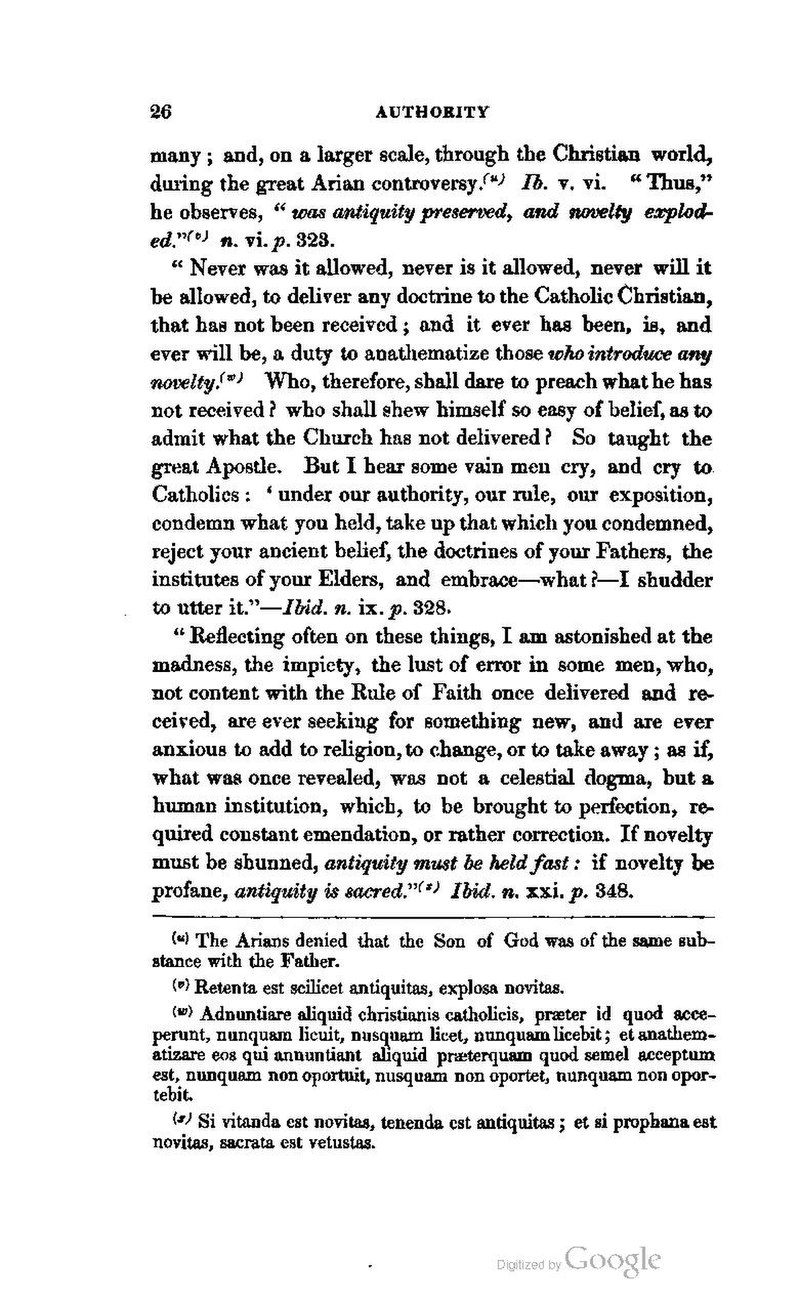many; and, on a larger scale, through the Christian world, during the great Arian controversy.[1] Ib. v. vi. “Thus," he observes, “ was antiquity preserved, and novelty exploded.” n. vi. p. 323.
“Never was it allowed, never is it allowed, never will it be allowed, to deliver any doctrine to the Catholic Christian, that has not been received ; and it ever has been, is, and ever will be, a duty to anathematize those who introduce any novelty.(w) Who, therefore, shall dare to preach what he has not received? who shall shew himself so easy of belief, as to admit what the Church has not delivered ? So taught the great Apostle. But I hear some vain men cry, and cry to Catholics : 'under our authority, our rule, our exposition, condemn what you held, take up that which you condemned, reject your ancient belief, the doctrines of your Fathers, the institutes of your Elders, and embrace—what?-I shudder to utter it.”—Ibid. n. ix. p. 328. Reflecting often on these things, I am astonished at the madness, the impiety, the lust of error in some men, who, not content with the Rule of Faith once delivered and received, are ever seeking for something new, and are ever anxious to add to religion, to change, or to take away; as if, what was once revealed, was not a celestial dogma, but a human institution, which, to be brought to perfection, required constant emendation, or rather correction. If novelty must be shunned, antiquity must be held fast : if novelty be profane, antiquity is sacred.”(5) Ibid. n. xxi. p. 348.
- ↑ The Arians denied that the Son of God was of the same substance with the Father.
